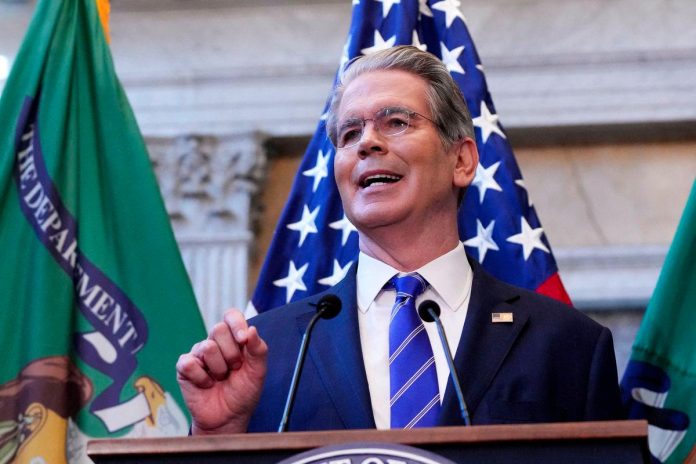WASHINGTON: US Treasury Secretary Scott Bessent has directed the International Monetary Fund and World Bank to adopt stronger positions against China’s state-driven economic practices.
Bessent specifically called for the IMF to enhance its country surveillance with greater objectivity and evenhandedness in examining economic imbalances.
He stated that the World Bank should completely cease its support for China and reallocate those resources to nations with more pressing development needs.
“The IMF should not shy away from asking difficult questions, more clearly highlighting internal and external imbalances, deepening its understanding of how industrial policies in large economies such as China contribute to those imbalances, explaining their potential harmful spillovers, and recommending appropriate corrective actions,“ Bessent told the IMF’s steering committee.
Successive US administrations have attributed China’s export-led growth model to creating excess manufacturing capacity that floods global markets with inexpensive products.
China maintains that its success in sectors like electric vehicles stems from innovation rather than government subsidies.
Bessent further criticized the IMF for being too lenient with recalcitrant creditors during debt restructuring negotiations for developing nations.
He emphasized that IMF resources must not serve as a piggy bank for creditor countries that made poor lending decisions but refuse to accept losses.
IMF Managing Director Kristalina Georgieva acknowledged the need for enhanced surveillance and stated she left meetings with a long list of homework.
The Treasury Secretary also targeted China within World Bank operations by urging restrictions on anti-competitive procurement practices by state-owned enterprises.
Bessent additionally called for the World Bank to abandon its climate finance commitment and adopt a broader energy approach including fossil fuels.
He advocated for increased World Bank financing in critical minerals to diversify supply chains currently dominated by China.
The US and China remain engaged in significant trade disputes including rare earth export restrictions and potential new US tariffs.
Both nations continue collaborating on developing country debt issues through the Global Sovereign Debt Roundtable despite their trade differences.
Georgieva confirmed the IMF’s commitment to using its influence to improve coordination between creditors and debtors.
Bessent’s statements represent his most detailed instructions to date regarding China’s role in global economic institutions.
The Treasury chief manages the dominant US shareholdings in both the IMF and World Bank.
His comments align with the Trump administration’s broader trade and energy policies opposing green subsidies.
The World Bank recently ended its ban on nuclear energy funding but hasn’t resolved natural gas financing.
Bessent first called for increased scrutiny of China’s economic practices at the global lenders back in April. – Reuters










